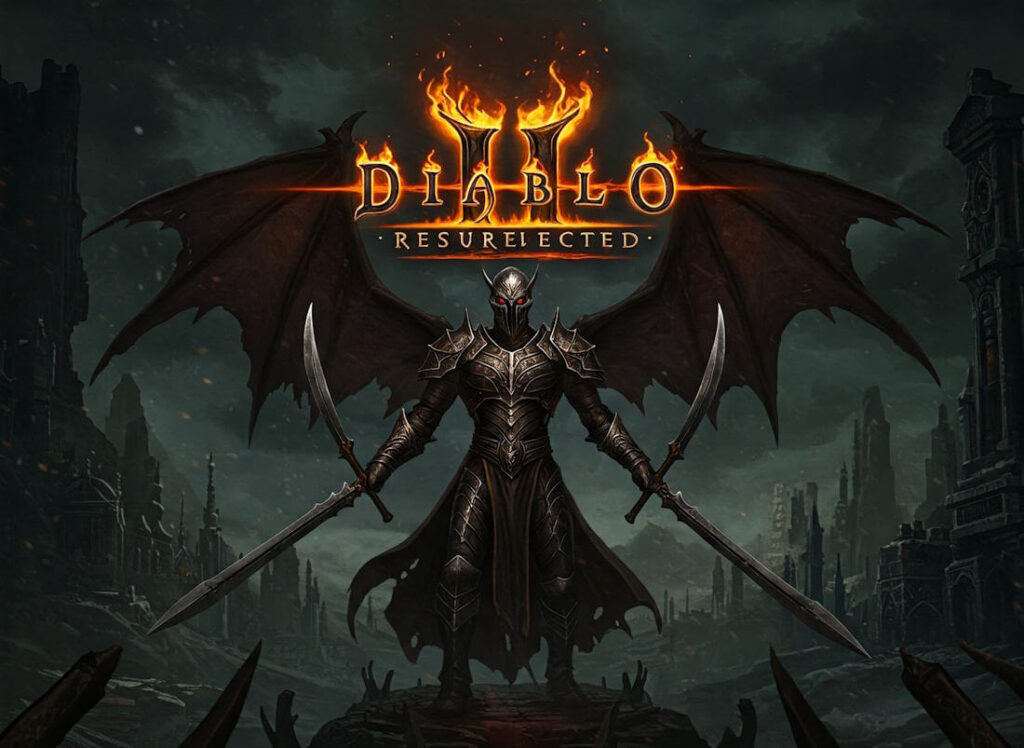The Battlefield franchise, developed by EA DICE, has long been recognized as a pioneer in the first-person shooter genre, characterized by large-scale battles, vehicular combat, and a focus on teamwork. With a dedicated following, each release has generated significant anticipation, positioning the series at the forefront of the gaming industry. The latest installment, Battlefield 2042, was no exception to this trend, facing immense expectations leading up to its release.
Prior to the game’s launch, promotional material including trailers and gameplay previews sparked considerable excitement among fans. The promise of advanced technology, dynamic environments, and an expansive multiplayer experience enticed both veterans of the series and new players alike. Battlefield 2042 was marketed as a return to form, evoking the aspects of gameplay many long-time players cherished while introducing innovative features such as the new “Hazard Zone” and “Portal” modes. This combination fueled a sense of optimism as the community eagerly awaited the opportunity to experience this fresh addition to the franchise.
However, as with any ambitious project, the reality upon release presented challenges that were unforeseen during the initial promotional phase. Many players encountered a variety of technical issues, including server instability and bugs, which detracted from the immersive experience promised by the pre-launch marketing. Furthermore, the absence of a traditional single-player campaign, a staple in earlier Battlefield titles, left some fans discontented, questioning the direction the franchise was taking. As Battlefield 2042 sought to redefine multiplayer gaming, it prompted discussions within the community about whether the shifts made could ultimately resonate with the longstanding identity that fans had come to expect.
With these factors at play, the introduction of Battlefield 2042 has set the stage for a critical evaluation of its impact on the franchise and whether EA can successfully navigate the challenges it faces in the current gaming landscape.
The Initial Reception and Criticisms
The launch of Battlefield 2042 was met with a mixed response from both players and critics, leading to widespread discussions about the game’s direction and its impact on the Battlefield franchise. Upon release, many gamers noted that the gameplay mechanics felt disjointed and unpolished, diverging significantly from the established formula that had garnered a loyal following in previous installments. Critics pointed out that the game’s focus on large-scale battles did not translate well into engaging gameplay experiences, undermining the strategic depth that players had come to expect.
Performance issues further compounded the problems, as numerous reports surfaced regarding bugs, crashes, and connectivity problems. These technical shortcomings not only hampered the overall user experience but also led to significant frustration among the player base. This situation was particularly problematic for a franchise known for its robust multiplayer capabilities, casting doubt on the game’s stability and long-term viability.
Moreover, players lamented the lack of content at launch. The absence of traditional gameplay elements, such as a comprehensive single-player campaign and recognizable maps, alienated many fans who had invested time and money into the series. Comparisons to earlier Battlefield games highlighted this disparity, with many arguing that Battlefield 2042 failed to live up to its predecessors’ legacy. As a result, the game suffered from a decline in player engagement shortly after its release.
The culmination of these criticisms has had a notable impact on the Battlefield franchise’s reputation. What was once a hallmark of team-based first-person shooters became a subject of heated debate within the gaming community. Addressing these issues will be critical if EA hopes to revive Battlefield’s standing and restore player trust in future titles.
EA’s Response to the Community Backlash
In light of the turbulent reception of Battlefield 2042, Electronic Arts (EA) has initiated a variety of responses aimed at the gaming community to mend relationships and address the concerns raised. Players voiced significant disappointment over various aspects of the game, including gameplay mechanics, bugs, and overall connectivity issues. Recognizing the urgency of these matters, EA promptly committed to listening to its player base and taking actionable steps toward improvement.
EA’s initial response involved a series of communications from developers highlighting the team’s awareness of specific problems. These messages included detailed acknowledgments of player feedback, clearly stating that EA understood the frustration that many users experienced. Furthermore, they outlined a roadmap for forthcoming patches and updates designed to tackle the identified issues. This transparency aimed to restore trust, showing that EA was willing to engage with its audience critically.
To ensure that these enhancements correctly align with player expectations, EA has sought to modify its development strategy based on community input. The company has begun involving select players in testing phases for updates, creating a feedback loop to gather early impressions and insights directly from the dedicated gaming community. This newfound approach not only emphasizes the collaborative potential of game development but also represents a shift towards a more player-centric methodology.
By establishing a clear line of communication and demonstrating a commitment to ongoing improvements, EA strives to salvage the Battlefield franchise amidst the backlash. Their ongoing efforts include regular updates on progress and the promise of a more engaged development process, signaling a potential turning point in the relationship between EA and its player community.
The Importance of Updates and Patches
In the dynamic landscape of the gaming industry, the significance of updates and patches cannot be overstated, especially in the context of major titles such as Battlefield 2042. These updates serve as crucial instruments for developers to enhance gameplay, rectify issues, and respond to community feedback. Since its launch, Battlefield 2042 has faced a plethora of criticisms ranging from technical glitches to gameplay imbalances, making the deployment of timely updates essential to rebuild player trust and improve overall satisfaction.
Electronic Arts (EA) has systematically addressed many of these concerns through a series of updates aimed at refining the Battlefield 2042 experience. For example, in several patches, EA has focused on resolving server stability issues that plagued players upon the game’s initial release. These fixes contributed to a smoother online experience, reducing frustrations that hindered gameplay enjoyment. Additionally, many of the updates have sought to balance weapon dynamics and introduce modifications to map designs, further addressing player grievances related to unfair advantages between different factions.
Moreover, the ongoing commitment to roll out frequent patches demonstrates EA’s acknowledgment of community sentiments and its dedication to enhancing Battlefield 2042. Each update presents an opportunity to fine-tune game mechanics, thereby elevating the player experience from the previously criticized state. Player feedback has been instrumental in shaping these updates; EA has actively involved its community in the discussion, seeking input on what players wish to see improved.
While the journey to fully redeem Battlefield 2042 remains ongoing, the impact of consistent updates and patches has gradually restored some confidence among players. Through effective quality assurance and responsiveness, EA stands on a path that could salvage the franchise and close the disparity between expectation and reality.
Community Involvement and Player Feedback
Community involvement plays a crucial role in the development and evolution of video games, often serving as a bridge between the developers and players. In the case of Battlefield 2042, Electronic Arts (EA) has recognized the importance of player feedback, especially following its mixed reception post-launch. Engaging with the community has become a strategic priority for EA, focusing on various platforms to gather insights and opinions that directly influence game enhancements.
One of the primary avenues for community interaction is through official forums where players can voice their thoughts on gameplay mechanics, balance issues, and overall experiences. EA has actively monitored these forums to identify recurring themes and concerns raised by the player base. This direct line of communication has allowed the development team to recognize specific problems that need addressing, ensuring that players feel heard and valued.
Surveys have also been utilized to gauge player sentiment, allowing EA to collect structured feedback regarding gameplay elements, new features, and potential improvements. These surveys provide a more comprehensive understanding of what the community desires in terms of updates and changes, giving the developers a clearer direction for future patches and expansions. Furthermore, EA’s engagement on social media platforms has facilitated real-time conversations with players, enabling quick responses to emerging issues and fostering a sense of community.
Through this proactive approach to community involvement, EA has seen the tangible impact of player feedback on Battlefield 2042. Updates and patches have increasingly aligned with the desires expressed by the community, illustrating the importance of a collaborative relationship between developers and players. Such involvement not only enhances the game’s quality but also strengthens the franchise’s reputation, forging a loyal player base that feels invested in the game’s ongoing journey.
The Competitive Landscape of First-Person Shooters
The first-person shooter (FPS) genre has become a highly competitive market, with several prominent titles vying for the attention of players. Battlefield 2042, developed by EA, faces stiff competition from established franchises like Call of Duty and Apex Legends, both of which have cultivated dedicated player bases and continuously evolved their gameplay offerings. Each of these games contributes uniquely to the FPS landscape, creating a varied environment where players have diverse preferences and expectations.
Call of Duty, with its fast-paced gameplay and annual releases, has set a high standard in the genre. Its strength lies in a robust multiplayer experience that incorporates classic modes intertwined with innovative mechanics like the battle royale feature seen in Warzone. Furthermore, the franchise’s commitment to regular updates and seasonal content keeps players engaged, ensuring long-term relevance. In contrast, Battlefield 2042 initially struggled with features such as connectivity issues and missing elements compared to its predecessors, which contributed to mixed player reception upon release.
Apex Legends enters the arena with a free-to-play model that has attracted a broad audience. The game’s emphasis on team dynamics, unique character abilities, and engaging storytelling through seasonal content provide a different flavor of FPS gameplay. Its continuous content updates and responsive community management have helped solidify its position within the competitive landscape. To remain relevant, EA must actively learn from the strengths of titles like Call of Duty and Apex Legends, focusing particularly on community feedback to improve gameplay and resolve existing issues within Battlefield 2042.
In light of these competitive dynamics, EA has a significant challenge ahead. Addressing the weaknesses of Battlefield 2042, while also innovating features that set it apart from its competitors, could be pivotal. Listening to player feedback, refining gameplay mechanics, and integrating new content will be essential steps for EA to regain its footing in this crowded marketplace.
Future Prospects for Battlefield 2042
As Battlefield 2042 continues to evolve, the future prospects of the franchise hinge significantly on EA’s ability to respond to community feedback and adapt gameplay accordingly. Following the lukewarm reception at launch, the developers have been actively analyzing player critiques and identifying critical areas for improvement. Key among these is the desire for features that resonate within the gaming community, such as enhanced maps, diverse game modes, and improved vehicle mechanics. By incorporating these elements into the game, EA could significantly enhance players’ overall experience and restore confidence in the franchise.
One of the most talked-about adaptations is the potential introduction of a more comprehensive single-player campaign. While Battlefield has traditionally emphasized multilateral warfare experiences, a single-player component could cater to a broader audience and provide a deeper narrative. Additionally, players have expressed interest in more cooperative modes that foster teamwork, which could further engage players and extend the game’s life cycle. Consequently, EA’s future success will largely depend on its capacity to innovate and present engaging content that meets the evolving expectations of its community.
The notion of live service models is also gaining traction, where regular updates and expansions can maintain interest. EA’s commitment to rolling out seasonal content and patches aimed at addressing prominent issues plays into this narrative. However, the challenge lies in ensuring that these updates are substantial and truly address players’ concerns. As the gaming landscape becomes more competitive, retaining a loyal player base will require a blend of innovation, quality content, and effective communication with players. Should EA successfully execute this recovery strategy, Battlefield 2042 may not only regain its footing but could also secure longevity within the franchise, positioning it favorably among other modern shooters in the market.
Lessons Learned from the Battlefield 2042 Experience
The release of Battlefield 2042 serves as a critical case study for the gaming industry, highlighting several important lessons that can greatly impact future game development and community engagement. One significant takeaway is the necessity of managing player expectations. In an age where early teasers, beta testing, and promotional content can generate high levels of excitement, developers must ensure that the final product meets or exceeds the built-up hype. Transparency about game mechanics, potential issues, and the roadmap for future updates can help align player expectations with the reality of the gaming experience.
Additionally, quality assurance (QA) processes in game development have come under scrutiny in light of Battlefield 2042’s launch. The game suffered from numerous bugs, performance issues, and gameplay imbalances that detracted from the overall user experience. This highlights the importance of robust testing phases and iterative development practices that allow for extensive feedback before the official release. A commitment to a more refined QA process can ultimately lead to a more polished product and foster long-term player loyalty.
Furthermore, fostering positive relationships with gaming communities has proven to be more significant than ever. Developers should actively engage with their player base through various channels, including forums, social media, and in-game feedback tools. Listening to player feedback and incorporating it into updates fosters a sense of ownership and community among gamers. This relationship can lead to enhanced player satisfaction and advocacy for a title, as opposed to the backlash seen with the release of Battlefield 2042.
Lastly, the gaming industry must embrace adaptability in response to player needs and changing expectations. As demonstrated by the challenges faced with Battlefield 2042, learning from past mistakes is vital for improving future releases. By integrating these lessons into their development processes, game developers can strive to deliver more satisfying and successful gaming experiences.
Conclusion: Can EA Salvage the Battlefield Franchise?
In recent discussions surrounding Battlefield 2042, the question of whether Electronic Arts (EA) can successfully revitalize the franchise looms large. Over the years, Battlefield has captivated gamers with its immersive experience and large-scale warfare, setting a high benchmark for first-person shooters. However, with the challenges presented in the latest installment, stakeholders are concerned about the series’ future and its established community.
The missteps encountered during the launch of Battlefield 2042 have initiated a significant dialogue regarding the expectations of players and the accountability of developers. EA’s initial lack of communication and the implementation of features deemed unsatisfactory by many have contributed to widespread criticism. However, recent developments indicate that EA is taking steps to address these concerns. Through updates and community engagement, they have begun to rebuild trust with gamers, an essential part of salvaging the franchise.
Looking forward, the potential for EA to turn the tide lies in its ability to listen and adapt based on community feedback. Incorporating desired features and fixing prevalent issues could prove crucial in regaining player confidence. Additionally, exploring new narratives, innovative gameplay mechanics, and maintaining the spirit of teamwork can rejuvenate interest in future titles. As technology advances, EA has an opportunity to leverage cutting-edge graphics and immersive experiences, thus enriching the overall gameplay, which could bring old players back while attracting new ones.
In summary, EA stands at a crossroads with the Battlefield franchise. While the road to redemption is fraught with obstacles, the essential factor will be the company’s responsiveness to its community and its commitment to delivering a quality gaming experience. Only time will reveal whether Battlefield 2042 can be a stepping stone toward a more promising future for the franchise as a whole.




